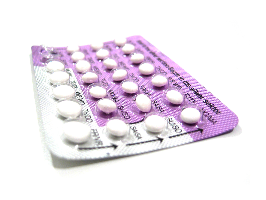
Caring for baby & you following childbirth
If you have generalised epilepsy or seizures associated with impaired consciousness you will be concerned about maintaining safety during a seizure, especially when alone. It is important to reduce the risk of harm to you and baby when getting up in the night, showering and bathing and on trips out. The following advice is to empower you to feel confident and independent:
- Click on: Epilepsy Action infromation Caring for a baby of young children
- When alone, feed baby whilst in a comfortable, supported position on a soft floor surface or a low level seat. This is to avoid a fall from a height that could result in harm during a seizure.
- Have baby changing equipment up and downstairs to minimise stair activity and use a changing mat on the floor with water out of reach from an inquisitive toddler. If you have early morning seizures, ask your partner to bring baby downstairs or come down on your bottom with baby protected in a car seat.
- Avoid baby slings and walking around with baby if you are vulnerable for a seizure without warning. Depending on the space in your home, you can move around with baby safely in a compact stroller, pram, pushchair or car seat.
- It is not advised to bath baby or yourself whilst alone but if you have no choice, top and tailing is recommended until someone can be with you whilst you bath baby: Emmas diary caring for a newborn/bathing
- Consider safety aids in/outside the home, click: Epilepsy Society safety aids, Epilepsy Action Safety aids & equipment , Epilepsy Action Keeping baby safe, Reducing risk of sudden infant death.
Milestones and development
The exposure to epilepsy medication during pregnancy can be associated with an increased risk of congenital malformations and delay in baby reaching milestones, especially when sodium valproate has been prescribed. If your baby has any adverse drug reaction or is born with any malformation, please notify the Medicines & Healthcare Products Regulatory Agency (MHRA) via the Yellow Card Scheme. If you have concerns about baby’s development or behaviour, discuss this with your health visitor and GP.
There should be proactive approach to support with individual assessment and referral if necessary to expert support services such as: paediatric, geneticist, psychotherapist, physiotherapy, play therapy (portage) and speech and language support. If your child has hypermobility/balance problems the physiotherapist may recommend supportive footwear to improve stability.
Further information & support
Portage A home visiting educational service for pre-school children with additional support needs and their families.
fetal anti-convulsant syndrome
Contact a family Autism.org
Organisation for Anti-Convulsant Syndrome: OACS
INFACT National Valproate Campaign
Talking to your child about epilepsy
It is so important to talk to your children about epilepsy, even at a really young age. This not only helps them understand what is happening if you were to have a seizure, it also enables you to teach your children what to do and how to help. Many extremely young children have been able to contact an emergency number for help if a family member has had a seizure, through pressing one button on the phone; it is preferable for your child to use a home phone in an emergency as your name and address can immediately be located. If you only have a mobile, ensure your child knows which button to press. As the operator will ask your child for their name and address (including postcode), it is important to start teaching them this as soon as they can talk. For further advice to teach your child about calling 999, click on: netmums. Showing your children how to place someone into the recovery position and contacting 999 has also been incorporated into the school curriculum. Epilepsy Action has also produced these great stories to share with children: When a parent has epilepsy The stories can be modified for young children by using soft toys/dolls for role play.
Inheritance
Many parents with epilepsy are understandably concerned about their children inheriting this condition. The risk for most people is low, but this does depend on whether or not your type of epilepsy is related to inheritance. Please click onto this link for excellent information: Epilepsy Action Epilepsy and genetics. Also feel you can discuss this with your doctor or epilepsy specialist.
Caring for your mental health following childbirth
Women with epilepsy can be at particular risk of depression and other mental health issues. This can be impacted due to the vulnerability of mental health in pregnancy and for the year following birth. If you develop any symptoms including unprovoked crying, low mood, lack of motivation and appetite, excessive sleeping, not wanting to dress, anxieties, fears, phobias or false beliefs, seek urgent advice about self help and treatment from your midwife, health visitor or GP. Please click on the links listed below for further information.
Further information
NHS post-natal depression advice
MIND support/ types mental health problems & post-natal depression Telephone: 0300 123 3393
Royal College of Psychiatry: Mental Health Problems in Pregnancy and Beyond
NHS Choices: Moodzone: Self help toolkit for Stress, Anxiety & Depression
PANDAS Pre & Postnatal Depression Advice & Support Website Helpline 0843 28 98 401:9am-8pm, all year
PND and me www.pndandme.co.uk postnatal depression peer support
National Childbirth Trust www.nct.org.uk Tel: 0300 3300 770
Cry-sis-self help & support for families with excessive crying & sleess babies:Website (daily 9am-10pm)
Samaritans: Freephone 116 123
Pre-conception counselling
The postnatal period is pivotal for reassessment of your epilepsy and epilepsy medication if you have not previously been seen by an epilepsy specialist, had uncontrolled seizures in pregnancy or if prescribed sodium valproate. Please ask your GP for a referral and continue to use effective contraception and take folic acid as prescribed, if there is risk of pregnancy. Click Pre-conception for further information.
Contraception
Enzyme-inducing epilepsy medication: Phenobarbital, phenytoin, primidone, carbamazepine, oxcarbazepine, eslicarbazepine, rufinamide, topiramate and perampanel affect the absorption of the hormonal methods of contraception 1-3. Methods of contraception that are not affected by these epilepsy medications include: male or female condoms, Depo-Provera (the injectable contraceptive), Diaphragms and Caps with spermicide, the intra-uterine device (IUD) and the intra-uterine system (Mirena).
Check to see if your contraception interacts with your treatment, click: Medscape interaction checker
Emergency contraception can be affected by the drugs listed above: please click on MHRA emergency contraception for further information.
Long term reversible contraception (LARC) patient leaflet, click LARC
Lamotrigine is not an enzyme-inducing epilepsy medication but lamotrigine levels can be reduced by 40-60% if co-prescribed the combined oral contraceptive (COC) which may result in reduced seizure control4. If you wish to commence the COC, discuss this with your GP or epilepsy specialist in the event the lamotrigine dosage needs adjusting.
Further information
Sexual Health clinic or Information Line: Tel: 0300 123 7123, Monday to Friday 9am - 8pm and weekends 11am-4pm or to find a clinic: Family Planning Association
Contraception after having a baby NHS
Epilepsy Society Contraception and epilepsy
Prescriber information about epilepsy medication interactions with hormonal contraception Click: News on professional page
A guide for people with learning disability Contraception FPA
Author: Kim Morley (2018) Caring for baby and you following childbirth. Available from: www.womenwithepilepsy.co.uk
References:
- Faculty of Sexual & Reproductive Health (FSRH) (2010) Antiepileptic Drugs, CEU Statement, Faculty of Sexual and Reproductive Healthcare Clinical Effectiveness Unit. pp 1-5.
- Faculty of Sexual & Reproductive Health (FSRH) (2011) Updated 2012) Drug interactions with hormonal contraception.
- Faculty of Sexual & Reproductive Health (FSRH) (2013) Update on newer antiepileptic and antiretroviral drugs and interactions with hormonal contraceptives.
- Faculty of Sexual & Reproductive Health (FSRH) 2017 Clinical Guidance
- Sabers A, Ohman I, Christensen J et al (2003) Oral contraceptives reduce lamotrigine plasma levels. Neurology 61(4) 570-1


